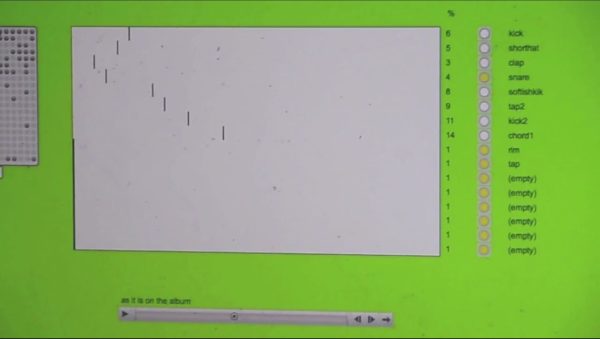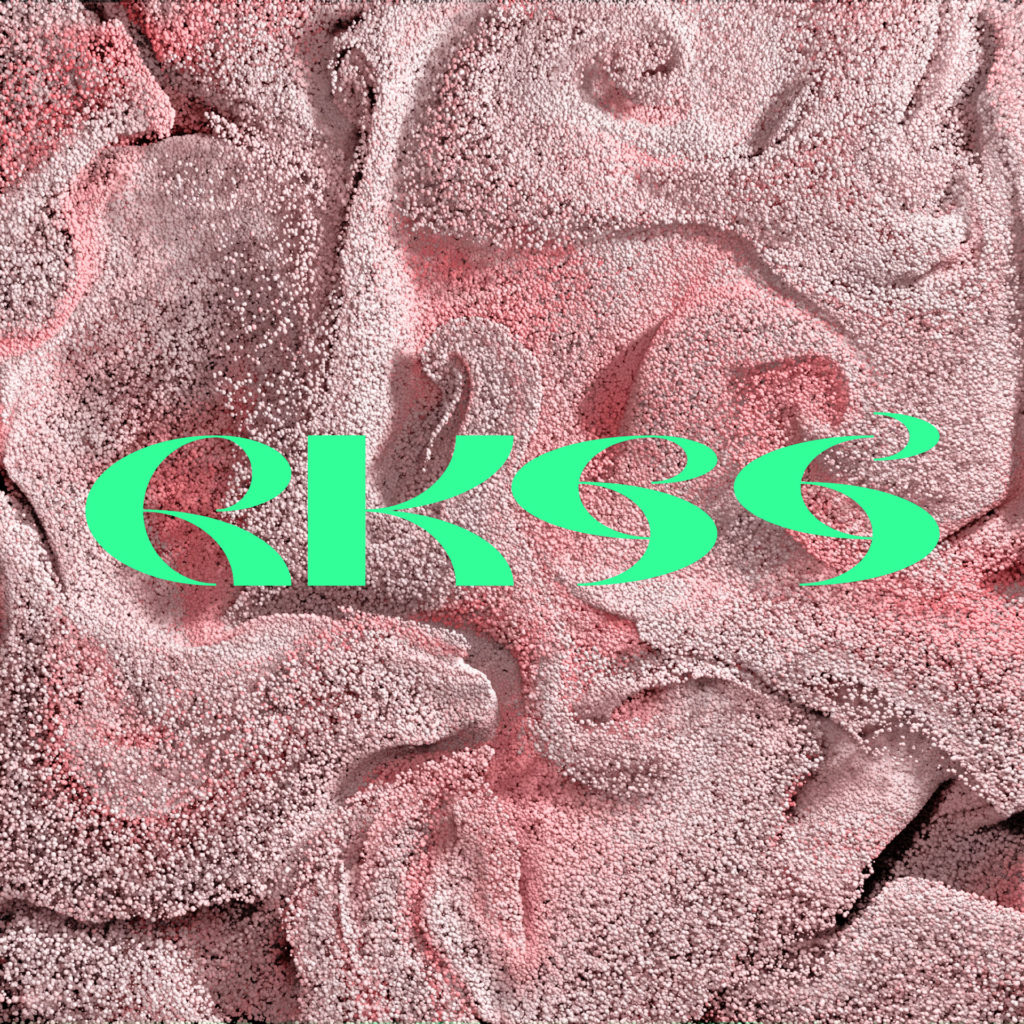Both the intersection of computer music and EDM as well as the specific sample pack used for DJ Tools already were part of Robin Buckley aka rkss’ work. The sample pack—EDM Kicks Vol 1—was part of the basic material for Top Charted, Buckley’s last album that was released on Where To Now? and “kind of spiritual predecessor” to the upcoming record on UIQ[1]. Aside from samples (and track titles), re-using the pack also offered a new perspective on what gives music value—and a quite different one from looking for new sounds so common in various areas of underground music.
“I was going through sample libraries on some kind of torrent site to try out different packs properly and I really like that EDM Kicks Vol 1. I ended up using it for Top Charted so I purchased the sample pack from Beatport. Obviously, EDM is a huge space with lots of different textures, BPMs and histories all going on at once. However, I think I really wanted a sample pack that was at some point quite cutting edge, but already sounds kind of dated—even EDM producers would want something a bit newer. I wasn’t looking for it to be retro or nostalgic at all, just really unfashionable to see what would happen if I started to push and break the sounds into new ones.”
While classic sampling was at the centre of her last album, DJ Tools moved into more complex ways of working the EDM Kicks Vol 1. Central to the process was Granulator, a Max For Live device using granular synthesis designed by Robert Henke (aka Monolake). This intersection of the sound of massive dance events and computer music’s abstractness was also at the heart of Buckley’s Brostep in the Style of Florian Hecker, an eight-channel electroacoustic composition from 2017. Her goal was to generate an “aesthetic similarity to certain works by Florian Hecker” with the help of synthesizer presets of the Massive software—the Dubstep Synths Massive Presets. Through that piece, Buckley achieved not only the sought-after sound aesthetic, but also managed to question economic and cultural values in the field of computer music. Buckley admits to being “really uncomfortable with synthesis”. However, she manages to look as much at basic processes behind abstract music with sampling and presets as any expert with synthesizers—all while focusing also on the social constraints related to the music. In this sense, DJ Tools was also a reassessment for Buckley on how she felt comfortable within the field she chose to work in: computer music. As a performer and as a person, she found both answers divergent and along with this lineage from early Groupe Recherche Musical works up to the respective responses from artists like Mark Fell.
“A starting point for a re-arrangement of both myself and my music comes from an experience of going to see the Richard Sides’ documentary at the ICA in 2014[2]. Musically, it really impacted me and therefore also this record. It featured interviews and music from Theo Burt, EVOL, Lorenzo Senni and Mark Fell. In the documentary, Fell shows the Max for Live patches he has been using in his work, and how he thinks about musical time and the technological interface in new and different ways. Since then, the process for me has become much more dynamic, away from a ‘pressing space bar’ type of thing I was doing before. Now I have all these different sketches and modules of pieces of music—rather than just composing tracks in a more traditional, linear way. Also at that time when I saw the film, I still identified as a boy, but started to realise I might not be (and instead transgender). Furthermore, I also started to see that maybe my work didn’t necessarily fit the fairly masculine framework of the music in the film. So it became a process of figuring out in what ways my work is similar to the music in the documentary, and in what ways I’m stepping outside that framework.”
In relation to a history and framework of computer music, Buckley used its structural content to bring EDM into computer music. Although she experimented with similar ideas as on DJ Tools in relation to current house and techno strands[3], she hopes to achieve more intense reaction with the EDM samples—reactions, that may be not possible through the use of sounds that would hit closer to home.
“Though I would say there is interest for me in pushing against the musical frameworks of house and techno—for example there are now also sample packages like UNDRGRND Sounds – Lo-fi House[4]—, I find that to be a too negative approach of simply deconstructing something I find really unchallenging. Or maybe it’s more about getting negative responses in the house and techno spaces because I use EDM sounds? I suppose I want people to really react to what I’m doing in the spaces that I am invited to. Using something more appropriate for those spaces—though interesting—wouldn’t generate the intense reactions that I am seeking from people.”
Such a statement also makes clear that Buckley sees herself as a part of club culture and engaging with it, although her preferred perspective is more in line with a distance also present in the work of Therre Thaemlitz[5]. Still, Buckley is both happy to perform in club settings and when her work as rkss is getting played in DJ sets (for which she’s planning on remixing some club tracks). This becomes also apparent on re-occurring moments from DJ Tools: Every now and then, the maelstrom she created with the EDM Kicks spits out rave references of break-downs and build ups—as “construction kits. We assure you that this pack will be one of the most usefull if you work in such styles as bigroom house, mainroom”, the album’s seventh track exemplifies.
“The structures and rhythms are meant to make one become aware of these kind of default positions or tropes given to us in most dance music, build-ups and breakdowns being good examples. However, by placing them in different contexts rhythmically and structurally you end up with quite different emotional affects.”
https://soundcloud.com/uiqmusic/construction-kits-we-assure-you-that-this-pack-will-be-one-of-the-most-usefull-if-you-work-in-such-styles-as/s-3sNfn
rkss – DJ Tools is out on 31st August 2018 via UIQ. Pre-order over here.
[1] See zweikommasieben #7 for an interview with Lee Gamble and zweikommasieben #14 resp. #17 for interviews with UIQ artists Zuli and Renick Bell.
[2] Richard Sides – “Don’t Blow It In The Vector”, see here.
[3] See rkss’ EP Cutoff (Alien Jams, 2016).
[4] https://www.loopmasters.com/products/5560-Lo-Fi-House
[5] See zweikommasieben #7 & #17.


